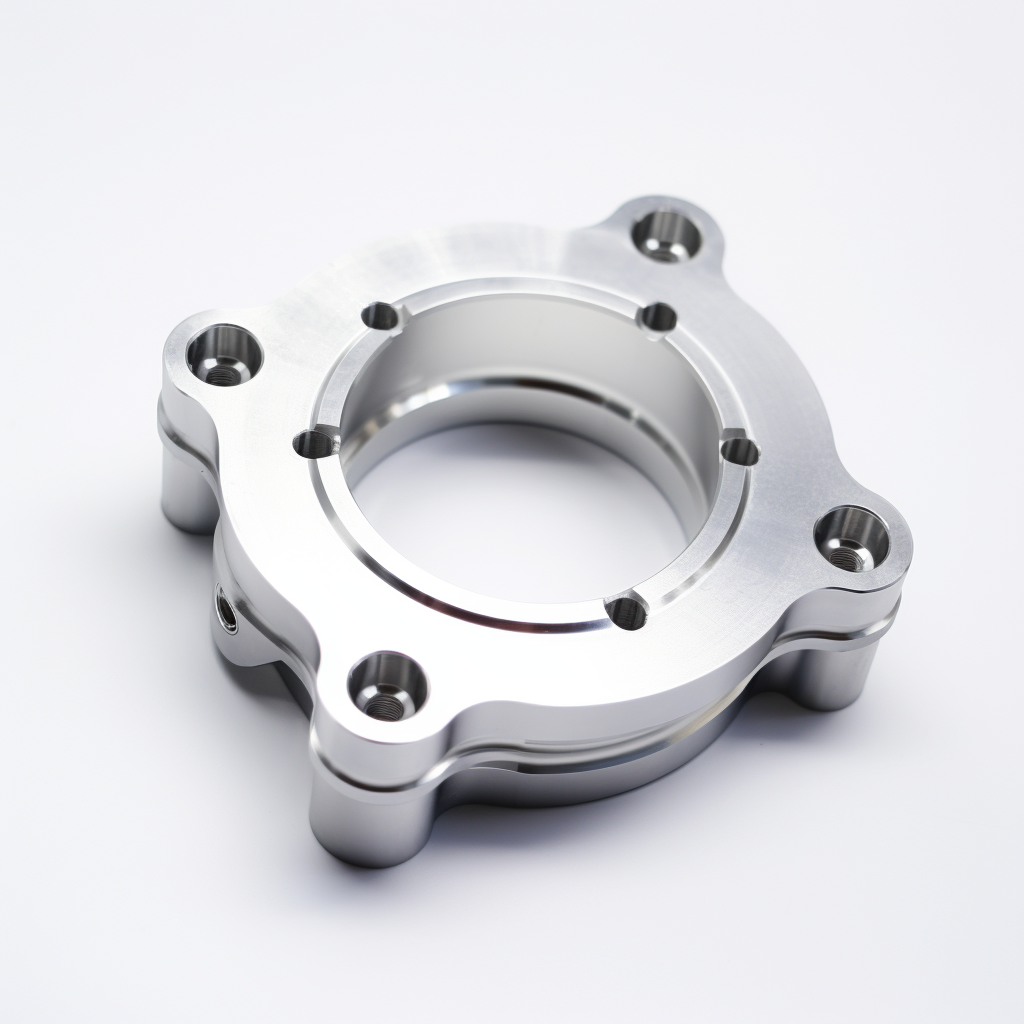
Carbon Steel Metal Selection Guide
Carbon steel is a widely used metal alloy primarily composed of iron and carbon, with small amounts of other elements. It is valued for its strength, versatility, and affordability. In this web page, we will explore the different types of carbon steel, its numerous advantages and disadvantages, and the diverse industrial uses where carbon steel plays a significant role.
Carbon Steel rapid manufacturing, & machined parts are available now!
Check with one of Canyon’s helpful product engineers for an expert material and manufacturing recommendation.
Common names include: Low Carbon Steel (Mild Steel), Medium Carbon Steel, High Carbon Steel, Ultra High Carbon Steel.

Advantages
- Strength: Carbon steel provides excellent strength, making it suitable for structural components and machinery.
- Versatility: Carbon steel is highly versatile and can be easily customized for specific applications through various heat treatment and alloying processes.
- Affordability: Carbon steel is cost-effective and readily available, making it an economical choice for many industries.
- Machinability: Carbon steel can be machined, welded, and fabricated with ease, allowing for efficient manufacturing processes.
- Durability: When properly maintained and protected against corrosion, carbon steel can have a long service life.
- Recyclability: Carbon steel is recyclable and can be reused, contributing to sustainability efforts.
Disadvantages
- Corrosion Susceptibility: Carbon steel is prone to corrosion when exposed to moisture and certain chemicals. Proper protective coatings or alloying elements are often necessary to mitigate corrosion.
- Brittleness in High-Carbon Steel: High carbon steel can be brittle and prone to cracking under heavy impact or stress, requiring careful handling and heat treatment.
- Limited Heat Resistance: Carbon steel has limited resistance to high temperatures and may lose its strength at elevated temperatures.
Common Applications of Carbon Steel
- Construction: Carbon steel is used in construction for structural beams, columns, and reinforcing bars due to its strength and durability.
- Automotive: Carbon steel is used in automobile frames, chassis components, and body panels for its strength and affordability.
- Machinery and Equipment: Carbon steel is used in machinery components, gears, and shafts due to its strength and machinability.
- Pipelines and Plumbing: Carbon steel pipes and fittings are used in oil and gas pipelines, water distribution, and plumbing systems.
- Manufacturing and Fabrication: Carbon steel is used in a wide range of manufactured products, from appliances to industrial machinery.
- Shipbuilding: Carbon steel is used in shipbuilding for hulls, frames, and other structural components due to its strength and weldability.
- Consumer Goods: Carbon steel is used in the production of consumer goods such as knives, tools, cookware, and home appliances.
- Infrastructure: Carbon steel is used in bridges, highways, and other infrastructure projects for its strength and durability.
- Agriculture: Carbon steel is used in agricultural equipment, including plows, cultivators, and machinery parts.
Please consult a Canyon Components Engineer about your specific application and we will use our decades of experience to formulate a solution that fits your need.
Types of Carbon Steel
Carbon Steel can come in different variations, depending on its composition and intended use. Some common types of Carbon Steel include the following.
Canyon Components strives to meet all customer service requests. Feel free to contact Canyon Components engineering and let our knowledgeable staff help you design the perfect part for your needs.
Low Carbon Steel (Mild Steel)
Containing up to 0.3% carbon, this type is highly malleable and ductile, making it ideal for bending and welding. It's widely used in structural applications, automotive bodies, and household appliances due to its excellent formability and relatively low cost.
Medium Carbon Steel
With a carbon content of 0.3% to 0.6%, this steel offers a good balance of strength, ductility, and hardness. It's commonly used in gears, railings, and machinery parts. Medium carbon steel can be heat-treated for increased strength and hardness.
High Carbon Steel
High carbon steel, containing 0.6% to 1% carbon, is known for its high strength and hardness. It's used in cutting tools, blades, and high-strength wires but is less ductile and more difficult to weld than lower carbon steels.
Ultra-High Carbon Steel
With carbon content over 1%, this type is extremely hard and strong, used in specialized applications like high-strength springs, cutting tools, and high-wear-resistant components. It's generally not suitable for welding and requires careful handling.
Low-Temperature Carbon Steel
Specially formulated to withstand low temperatures without becoming brittle, this type is ideal for applications in cold environments, such as refrigeration units, cryogenic tanks, and pipelines in cold climates.
High-Strength, Low-Alloy (HSLA) Steel
This type includes additional alloying elements like manganese, chromium, and nickel to enhance strength without significantly increasing weight. HSLA steel is used in automotive frames, bridges, and other structures where weight reduction and strength are critical.
Please consult a Canyon Components Engineer about your specific application and we will use our decades of experience to formulate a solution that fits your need.
Manufacturing Options for Carbon Steel
Carbon Steel parts can be manufactured using several methods, each suitable for different applications and part complexities.
Each of these methods has its own advantages, limitations, and cost implications. The choice of manufacturing technique usually depends on factors like the complexity of the design, required precision, material properties, and production volume.
Canyon Components strives to meet all customer service requests. Feel free to contact Canyon Components engineering and let our knowledgeable staff help you design the perfect part for your needs.
Back to Metals Hub

Get A Quote Now!

Groove Design References
Learn More
Coatings, Packaging, & Other Services
Learn More
Custom Parts & Custom O-rings
Learn More
